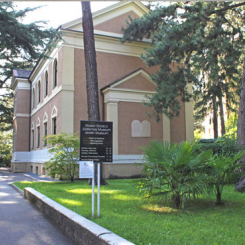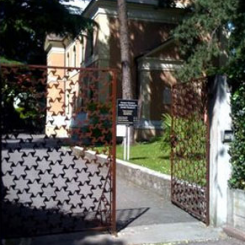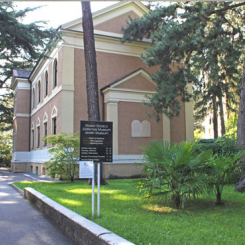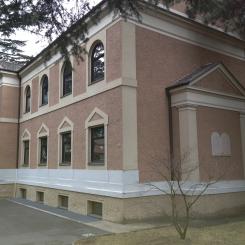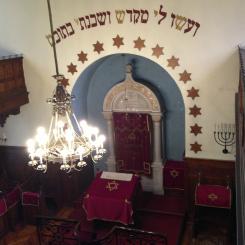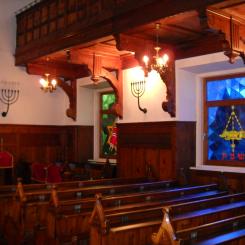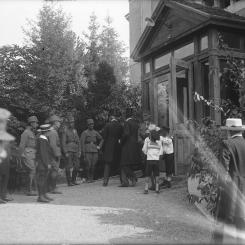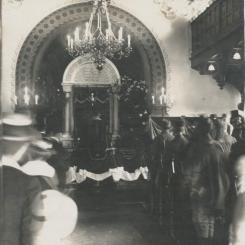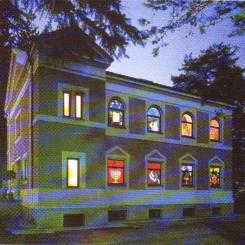The Synagogue
The Jewish community today includes up to 50 members, for whom services are held in the synagogue. Religious festivities are celebrated in the synagogue and in the close Cultural centre Anne Frank. The synagogue had been damaged during Nazi occupation in South Tyrol from September 1943 to April 1945, the building and the furniture could however be conserved.
In 1894, the Königswarter Foundation in Meran invited Jewish patients and guests as well as Jewish inhabitans of Meran to attend divine service in the prayer room of the Sanatorium for destitute Jews, which had been opened in 1893 with the help and support by donations from Jewish communities in many countries. Soon it turned out that the prayer room was too small to accomodate the religious community, so Rudolf Magnus, curator of the Königswarter Foundation, suggested to plan the construction of a synagogue, explains Aron Tänzer in the ceremonial account „Die Geschichte der Königswarter-Stiftung in Meran 1872-1907“, which Tänzer had written on the occasion of the Raphael Hausmann's 70th birthday. Hausmann was the first Jewish physician in Meran, many excellent doctors were to follow, and the president and later honorary president of the Königswarter Foundation in Meran. The construction works were directed by the architecture office Musch & Lun.
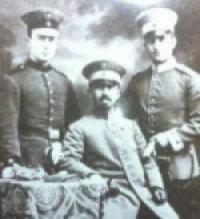
Rabbi Aron Tänzer between his sons Fritz and Paul during First World War
The synagogue was inaugurated on 27 March 1901. It was the first synagogue in the whole of Tirol. When Aron Tänzer lighted the „eternal lamp“ he did so still in his position as the Rabbi for Tirol and Vorarlberg. A few years afterwards, he decided to restrict his responsibility to Meran and the Southern part of the historical region of Tirol, including the Trentino, and so from 1905 to 1907 Tänzer served as the Rabbi in Meran.
In his inaugural speech Friedrich Stransky, president of the Königswarter Foundation, emphasized the main importance of beneficence for Judaism. He quoted from a major work by Moritz Lazarus, from "Ethik des Judentums", when he said: "Just as true religiousness cannot be conceived without good deeds, in the same mode every benefaction originates from a believing heart."
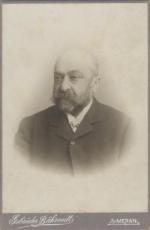
Friedrich Stransky

